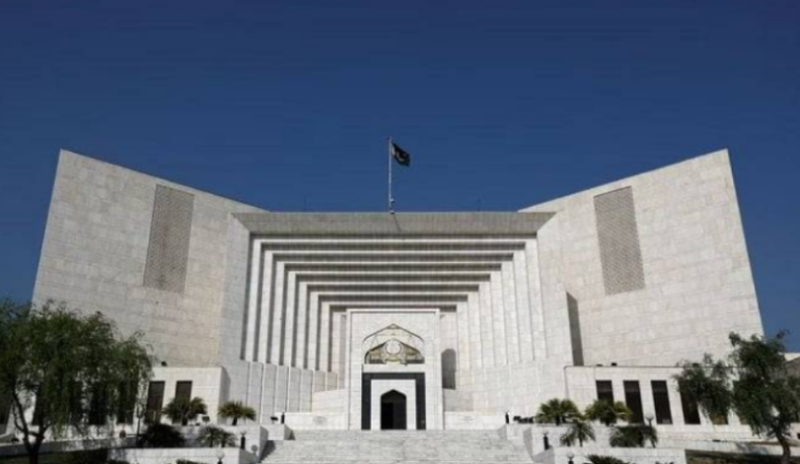Islamabad (Web Desk): Pakistan Tehreek-e-Insaf (PTI) founder’s counsel Barrister Ali Zafar on Thursday boycotted the proceedings on a review plea against the Supreme Court’s 2022 verdict on the defection clause under Article 63-A of the Constitution.
A five-member larger bench presided by Chief Justice of Pakistan (CJP) Qazi Faez Isa and comprising Justice Amin ud Din Khan, Justice Jamal Khan Mandokhail, Justice Mazhar Alam Miankhel and Justice Naeem Akhtar Aghan is hearing the review petition filed by filed by the Supreme Court Bar Association (SCBA).
During today’s hearing, Barrister Zafar informed the court that he met the PTI founder, however, but it was not in private as there were jail authorities present during the meeting.
He further said that that the PTI founder has requested to appear before the court himself and that he wishes to raise certain arguments via video link.
Reiterating the party's earlier opposition to the bench, Barrister Ali Zafar said that the PTI founder has maintained that the five-member bench hearing the said case wasn't constituted properly so they won't be a part of the proceedings.
On Wednesday, the to court granted time to Barrister Ali Zafar to have consultation with the PTI founder in jail and also instructed the Attorney General for Pakistan (AGP) to make arrangements in that regard.
However, the CJP rejected Ali Zafar’s objection on the formation of the bench, saying that he (the lawyer) had stated that the decision should be pronounced, “so we pronounced it. We all have a unanimous decision to reject the objection.”
Justice Mandokhail asked the lawyer to read the minutes of Judges Committee to view how many members were there.
Barrister Ali Zafar had said that the PTI founder was the petitioner and he wanted to meet him in jail for consultation before giving arguments.
Lawyer Ali Zafar said that the current bench could not hear the case without the judge who had written the decision. The said judge was not there to defend the decision.
He said that after rejection of the objections, he wanted to take instructions from his client whether to give further arguments or not.
In 2022, the SC announced that parliamentarians cannot vote against their party policy, adding that the votes of dissident lawmakers will not be counted.
The top court, issuing its verdict on the presidential reference that sought its interpretation of Article 63-A of the Constitution, which pertains to the disqualification of lawmakers over defection, said that the “article concerned cannot be interpreted alone.”
The decision by the SC was a 3-2 split decision, with a majority of the judges not allowing lawmakers to vote against the party line in four instances outlined under Article 63-A. These four instances are the election of a prime minister and chief minister, a vote of confidence or no-confidence, a Constitution amendment bill, and a money bill.
Later, the Supreme Court Bar Association’s (SCBA) requested the SC to direct all state functionaries to act strictly in accordance with the Constitution and the law, and ask them to restrain from acting in any manner detrimental to and unwarranted by the Constitution.
“The apex court’s opinion about not counting the dissident’s votes is against the Constitution and equal to interference in it,” the SCBA said.
According to Article 63 (A) of the Constitution, a parliamentarian can be disqualified on grounds of defection if he votes or abstains from voting in the House contrary to any direction issued by the parliamentary party to which he belongs, in relation to the election of the prime minister or chief minister, or a vote of confidence or a vote of no-confidence; or a money bill or a Constitution (amendment) bill”
The Article says that the party head has to declare in writing that the MNA concerned has defected but before making the declaration, the party head will provide such member with an opportunity to show cause as to why such declaration may not be made against him.
After giving the member a chance to explain their reasons, the party head will forward the declaration to the speaker, who will forward it to the chief election commissioner (CEC).
The CEC will then have 30 days to confirm the declaration. If confirmed by the CEC, the member “shall cease to be a member of the House and his seat shall become vacant”.


